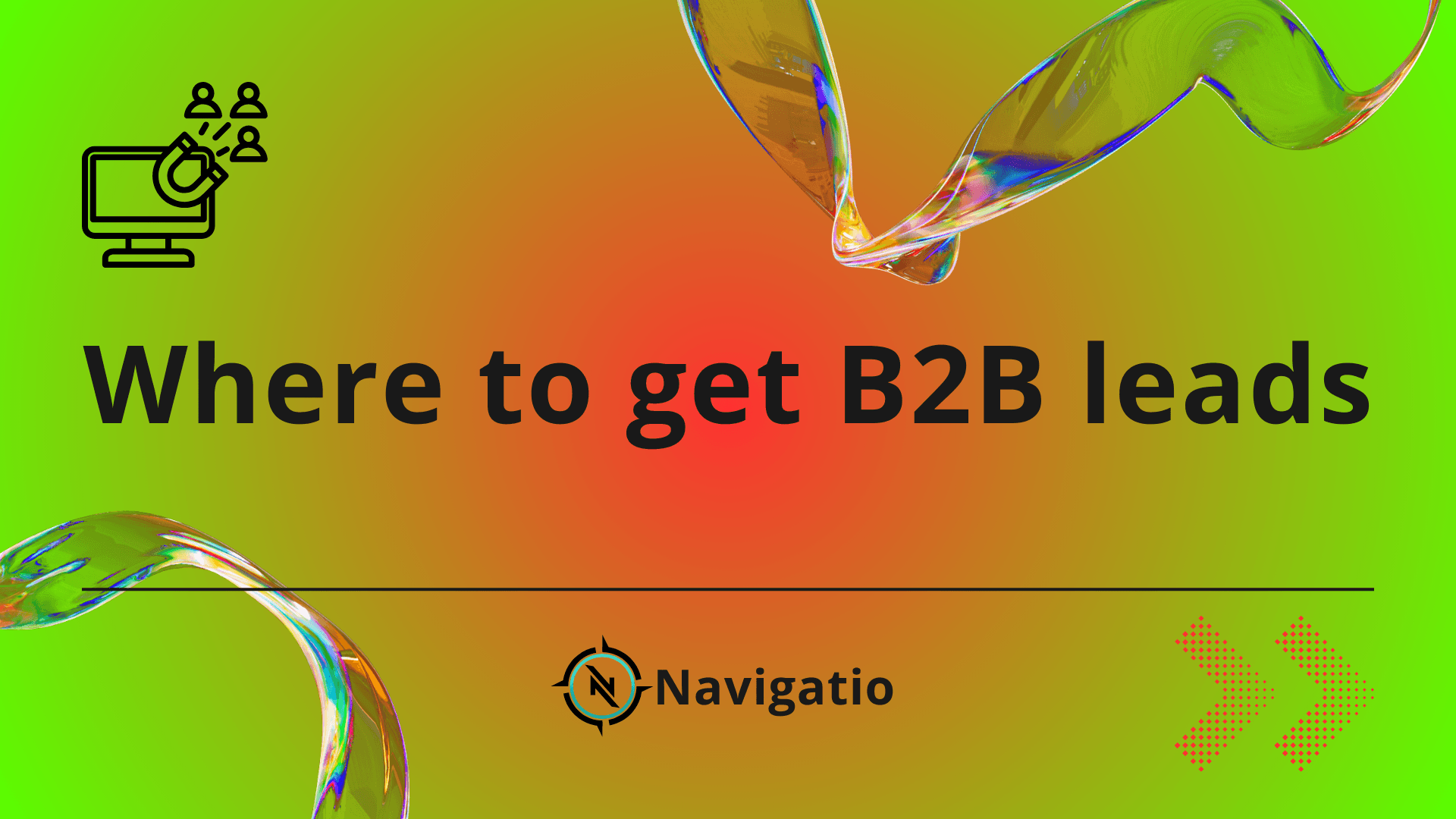Today, traditional lead sources like LinkedIn remain the most popular and affordable for generating qualified leads. Thanks to its concept of social networking similarity and built-in filtering features, it is becoming an irreplaceable tool for lead generators to get closer to people and understand their audience.
Most professionals are actively using its benefits, even you and me.
However, to succeed, you need to think beyond the obvious. With so many companies vying for attention in the same space, relying solely on one channel can limit the impact of your outreach campaign. Which is why we will explore alternative ways for outreach in this article.
Innovative tools and platforms allow you to connect with prospects in a more accurate and strategic way – using data, integrating intent signals, and diversifying your lead sources. But this requires a willingness to explore lesser-known channels and invest in tools that provide deeper insights into prospect behavior. Some tools allow you to not only generate leads, but also identify anonymous website visitors, join niche communities, or track companies that signal intent to buy. Engaging with leads constructively by providing the right information at the right time is crucial. By applying a multi-tooll approach, you can position your company as a reliable partner and develop a lead generation strategy that is sustainable and adaptive.

1. Industry-specific resources
Industry-specific marketplaces can connect you with your target audience and provide detailed information about your company.
- Clutch: offers in-depth company profiles, from case studies to customer reviews, making it easy to find quality leads For technology services
- AngelList: great for connecting with startups, especially in the tech industry, and allows you to view information about the company’s funding, number of employees, and founder information.
2. Facebook and Reddit Communities
In addition to LinkedIn, professionals gather on Facebook and Reddit in industry-specific groups to share tips and tricks. Joining these communities can help you blend in and connect with potential clients.
- Facebook: find niche groups by industry, location, or interest. Active participation in these groups builds trust and provides a sense of human connection that will introduce your brand to potential customers in a simple and natural way.
- Reddit: subreddits such as r/smallbusiness, r/startups, or industry-specific channels allow you to contribute and build connections.
3. Website Visitor Tracking Tools
Knowing which companies are visiting your website gives you a head start on finding potential customers. Visitor tracking tools identify anonymous visitors and provide information about the company to plan further actions.
- Leadfeeder: integrates with your website to identify companies based on IP addresses, tracking their page activity and engagement levels.
- Clearbit Reveal: matches anonymous website traffic with company profiles, providing information on company size, industry for more personalized outreach.
- Albacross: a user-friendly platform that shows detailed data about visitors, including company name, number of page views, and interaction history.
4. Industry forums
Professionals ask questions and seek advice on industry forums like Quora, creating opportunities for interaction. By offering valuable answers, you position your company as an industry expert and gain access to potential leads.
- Advertise on Quora: increase the popularity of your posts with ads to gain a wider reach, putting your expertise in front of users looking for solutions. Find other forums as well, share knowledge and resources with subtle calls to action.
5. Webinars and Virtual Workshops
Webinars provide an opportunity to interact directly with potential customers by offering them value ahead of time. Many B2B companies use webinars to present case studies, industry information, or product demos, engaging prospects during the registration process.
- Youtube: an obvious and accessible way to share your recordings.
- Zoom Webinar: simplified registration and customizable follow-ups make Zoom a popular choice for lead generation for B2B companies.
- WebinarJam: integrates with CRM and email marketing platforms to easily automate audience outreach based on engagement metrics.
6. Content syndication platforms
Distributing your content on high-traffic sites can reach potential customers who are already interested in relevant topics. This method of content sharing increases visibility by driving interested readers to your site.
- LinkedIn Sponsored Content: LinkedIn content syndication can be targeted to specific demographics or industries, ensuring that your content reaches the right audience.
- Outbrain: targets your content to relevant audiences on premium publisher sites, expanding your reach.
7. Intent Data Platforms
Intent data collection tools track online behavior, identifying companies that research certain topics. This data highlights potential customers at the stage of active purchase, which allows for quick targeted outreach.
- Bombora: a leader in intent data collection, Bombora analyzes browsing and engagement patterns to highlight companies that demonstrate intent signals in your industry.
- Demandbase: combines intent data with account-based marketing functions, allowing you to personalize campaigns based on engagement levels.
8. Offline Events
Although digital methods dominate, offline interaction remains a powerful tool. Attending conferences that are relevant to your industry can provide you with useful connections and high-quality leads that are ready to engage.
- Eventbrite: find out about local and international events where your target audience gathers, creating opportunities for networking and lead generation.
- Meetup: allows you to interact with niche groups in your area or industry.
To sum up
By using multiple tools designed for each unique channel, you’ll be able to more accurately identify high-quality leads and drive deeper engagement through meaningful interactions. By taking an omnichannel approach, you create a strategy that combines innovative tools with personalized outreach, making your business more visible and more memorable. Using data from different channels allows you to get a more holistic view of your audience’s needs and behavior. Those who are informed are always ahead.
Your main goal is to find “that” spot for your business and your ICP. Explore and adapt in the spaces where your ideal customers gather, so you have a much better chance of making connections or exchanging ideas, as well as sharing content to tell your story.
